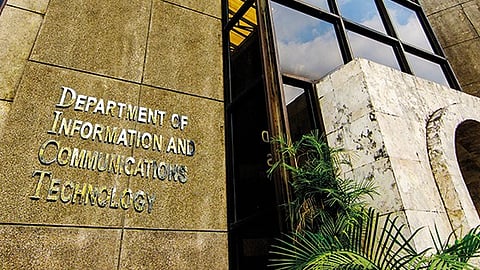
- NEWS
- the EDIT
- COMMENTARY
- BUSINESS
- LIFE
- SHOW
- ACTION
- GLOBAL GOALS
- SNAPS
- DYARYO TIRADA
- MORE

Former Department of Information and Communications Technology (DICT) Secretary Gregorio Honasan has raised significant concerns that the current version of the Konektadong Pinoy Bill could jeopardize national security, citing insufficient safeguards for the country's digital infrastructure.
Honasan, a former senator, highlighted the absence of a clear legal process for national security vetting of Data Transmission Participants (DTPs). He warned that relying solely on the Implementing Rules and Regulations (IRR) would be inadequate to ensure proper scrutiny and accountability for these critical entities.
"Without a prior legally mandated national security vetting process in allowing DTP, the IRR alone cannot provide the necessary level of scrutiny and accountability," Honasan said.
He further criticized the bill for failing to adequately regulate foreign-controlled firms, particularly those involved in sensitive operations such as cable landing stations and satellite gateways.
Honasan described the current provisions as overly lenient and lacking sufficient protections for critical infrastructure.
Additionally, Honasan pointed out that the bill does not establish clear and legally grounded penalties for companies that violate its regulations. He cautioned that this omission could lead to severe system breakdowns and service disruptions.
Echoing Honasan's concerns, the Philippine Chamber of Telecommunications Operators (PCTO) has expressed support for his stance and urged President Ferdinand Marcos Jr. to veto the measure. The group asserted that the measure lacks proper regulatory oversight and could compromise national security.
Some telecommunications stakeholders have also voiced apprehension over the bill’s proposed two-year compliance window, deeming it insufficient for meeting necessary cybersecurity standards.
Despite these warnings and opposition from various sectors, the DICT remains confident that the Konektadong Pinoy Bill will be enacted into law, downplaying concerns regarding its potential negative impact on national security.
###
